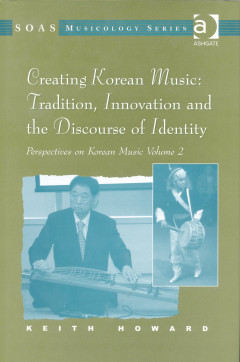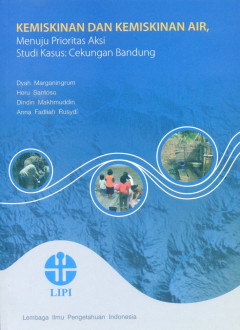Ditapis dengan
Ditemukan 2 dari pencarian Anda melalui kata kunci: author="Keith Howard"

Creating Korean Music: Tradition, Innovation and the Discourse of Identity: P…
This volume documents how identity has been negotiated by musicians, composers and audiences. Until recently, references to tradition were common and, by critics and musicologists, required. Western music increasingly encroached on the market for Korean music and doubts were raised about the future of any music identifiably Korean.
- Edisi
- -
- ISBN/ISSN
- 10 0-7546-5729-9
- Deskripsi Fisik
- xviii, 242 p. : ill. ; 24 cm.
- Judul Seri
- -
- No. Panggil
- 780.951 9 HOW c

Preserving Korean Music: Intangible Cultural Properties as Icons of Identity:…
In this book, Keith Howard provides the first comprehensive analysis in English of the system. He documents court music and dance, Confucian and shaman ritual music, folksongs, the professional folk-art genres of p’ansori (’epic storytelling through song’) and sanjo (’scattered melodies’), and more, as well as instrument making, food preparation and liquor distilling – a good perfor…
- Edisi
- -
- ISBN/ISSN
- 0-7546-3892-8
- Deskripsi Fisik
- xvi, 228 p. ; 24 cm.
- Judul Seri
- -
- No. Panggil
- 780.951 9 KAR h
 Karya Umum
Karya Umum  Filsafat
Filsafat  Agama
Agama  Ilmu-ilmu Sosial
Ilmu-ilmu Sosial  Bahasa
Bahasa  Ilmu-ilmu Murni
Ilmu-ilmu Murni  Ilmu-ilmu Terapan
Ilmu-ilmu Terapan  Kesenian, Hiburan, dan Olahraga
Kesenian, Hiburan, dan Olahraga  Kesusastraan
Kesusastraan  Geografi dan Sejarah
Geografi dan Sejarah